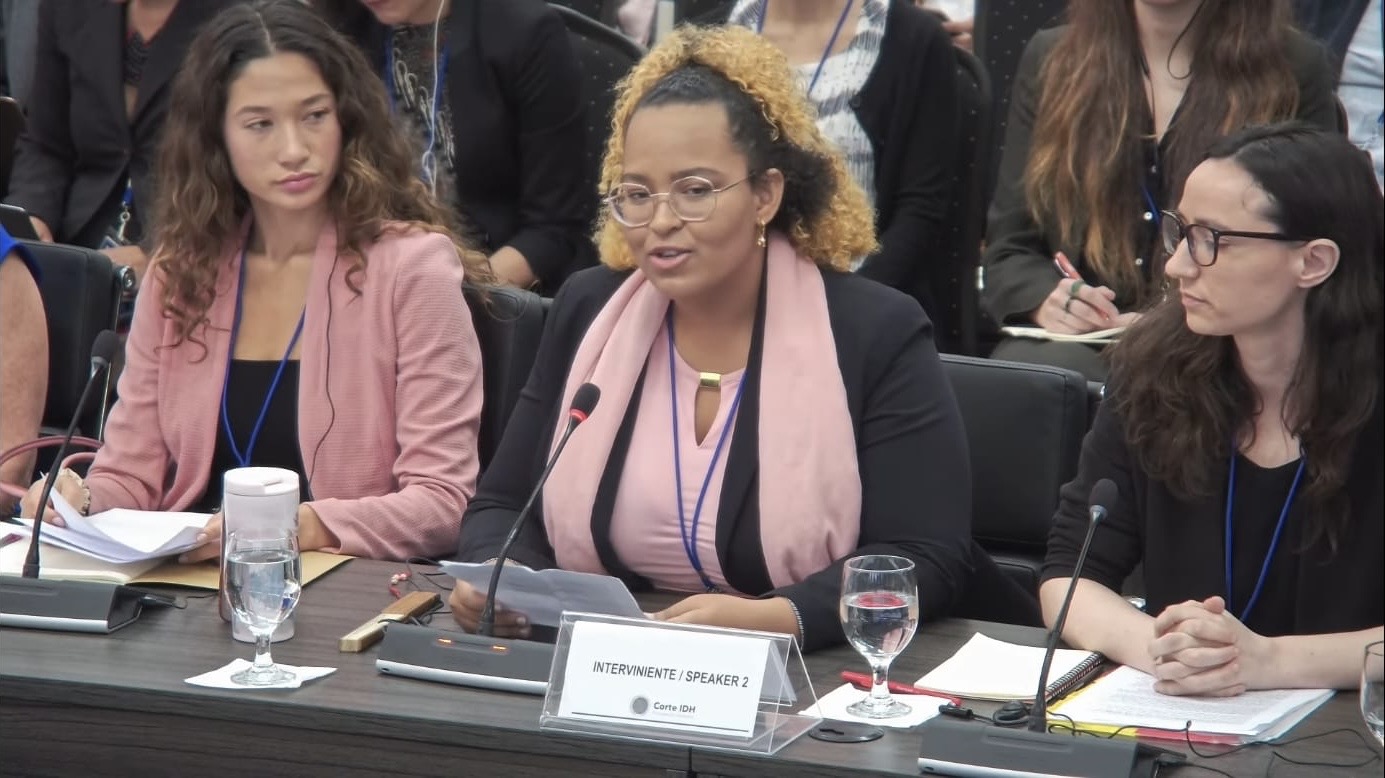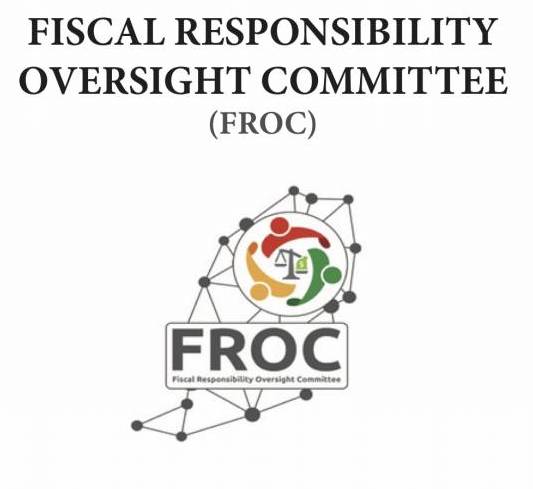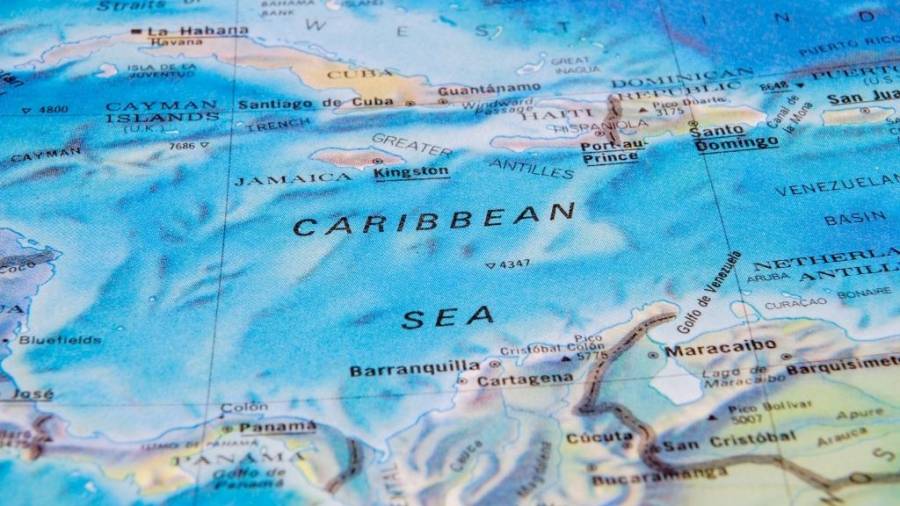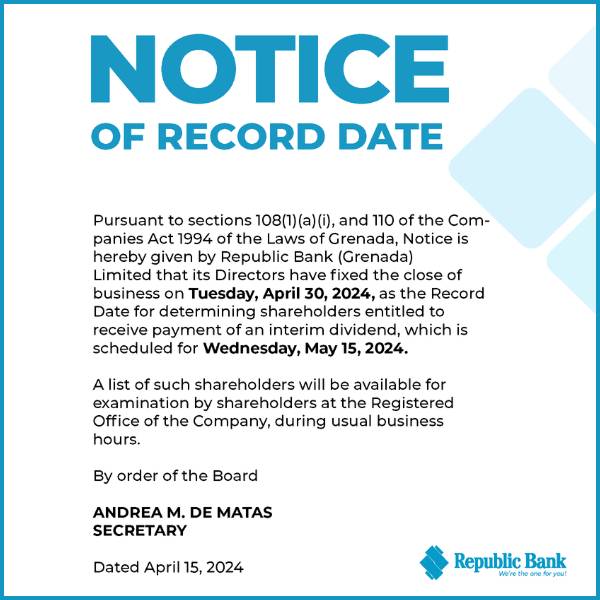On 1 August 1834, Britain passed the Slavery Abolition Act.
The Abolition Act prohibited the buying, selling and owning of human beings in British colonies. It was the beginning of freedom for 800,000 enslaved people in the English-speaking Caribbean. The significance of 1 August is worthy of commemoration, and the time has come for us to reclaim the narrative of abolition and emancipation by declaring 1 August a national public holiday here in Grenada.
Sadly, what is often omitted from the celebrations commemorating Emancipation Day in Grenada — and throughout the Caribbean — is the full account of the events that led to 1 August 1834. We are made to believe that the English, in their goodwill alone, abolished slavery.
The royal family and parliamentarians in England did not wake up on the morning of 1 August 1834 and unilaterally decide — out of the goodness of their hearts — to abolish slavery. The Sam Sharpe revolt in Jamaica, in 1831–1832, was the last of a long line of bloody revolts that led decision-makers in Britain to debate — whether or not revolts like the one led by Preacher Sharpe had made slavery financially unsustainable in the colonies.
It is fundamentally important that we recognise the relevance of events in the Caribbean that led to the Abolition Act of 1834. We must also connect those events to the current conversations taking place in the Caribbean, the USA, and in Europe on slavery, reparations and justice for formerly enslaved people of African descent.
As a people, we must acknowledge that the commemoration of the abolition and emancipation of slavery on the first Monday in August, dilutes the heroic and valiant struggles of enslaved African people who sacrificed their lives to make freedom a reality. Moreover, descendants of the enslaved people must never be asked to work on Emancipation Day, 1 August. Never!
As we reclaim our history and African identity during this truly unimaginable period in our lifetime — a time when we are engaging in a serious discussion on Europe’s role in the genocide of our First Peoples, the African slave trade and in chattel slavery — it is also a time for us to re-centre this conversation around the real heroes and heroines of freedom and emancipation; and, the first step in doing so, is by being historically accurate.
1 August should be one of the most important dates on our national public calendar here in Grenada.
Let us lead the way by declaring 1 August a National Public Holiday; a day celebrating our African ancestors who, by diverse forms of resistance and revolts, freed themselves from slavery.
GNRC
GNRC is a Cabinet-appointed Committee headed by attorney Arley Salimbi Gill as Chairman.






















833 – Britain passes Abolition of Slavery Act, ordering gradual abolition of slavery in all British colonies. This same country then spent a huge amount of money attempting to stop slave trafficking worldwide. Unfortunately many African nations still use slave labour some of it involving small children in mines. Celebrate that if you dare
WHAT IF THE 1ST IF AGUST FALLS ON A SUN OR A SAT WHEN WE ARE OFF WORK, I THINK ITS SAFE TO LEAVE IT THE FIRST MONDAY AS WE DO NEED THE BREAK FROM A WORK 8 TO 5 OR IN SOME AUSE 8 TO 4 WORKING HALF DAY THE SATURDAY. WE IN GRENADA ARE UNDER PAID FOR OUT SKILLL WORK AND IN THE PRIVATE COMPANIES AND WE LIVING TO WORK NOT WORKING TO LIVE TO ENJOY OUR LABOUR. YES WE HONOUR OR HISTORY BUT LETS MAKE BETTER HISTORY IN THE FUTHUR
The numerous holidays in Grenada are already too many. It appears as though new ones are being suggested with renewed frevor, seeming to compete with the hotel projects that are scarifying the landscape. Let us remember that one of the main causes of the Roman Empire’s collapse was because too many holidays reduced the states’ ability to generate revenue. May your continued advocacy for restorative justice lead you to a more nuanced commemoration that adds tangible value to our society than it takes away from it.
He is not asking for a new holiday. He is saying that Emancipation Day should be on August 1 and not the first Monday of August. He wants us to be historically accurate.